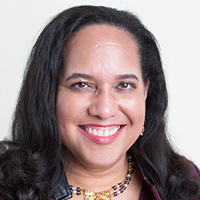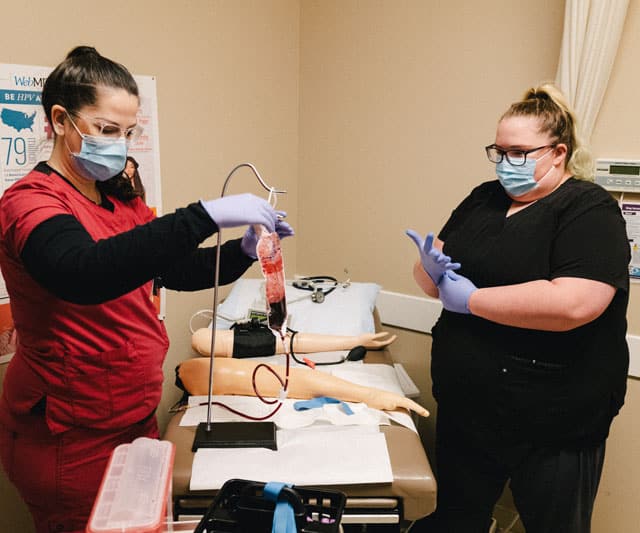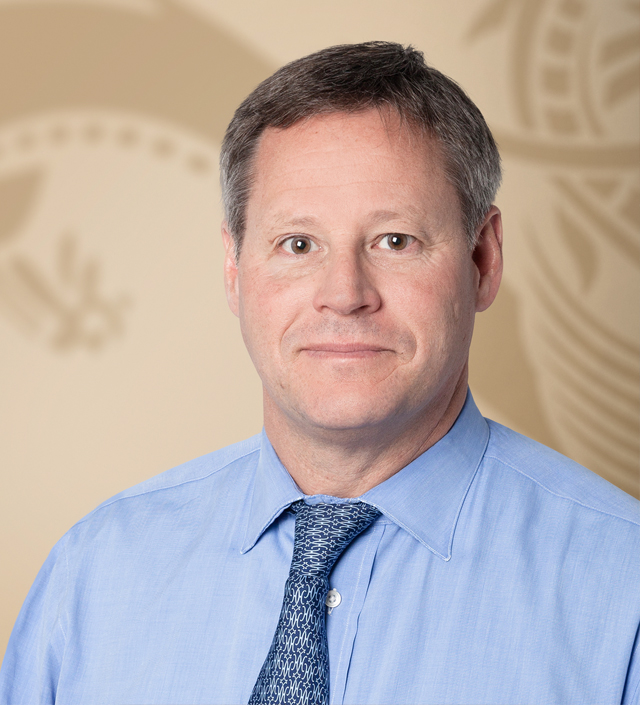
When I was in my twenties, I worked for a company founded by two American women who were trailblazing a path on how to do business in China. They decided to take on a monumental task of being the first Western company to open a private hospital in China.
We were already plenty busy with our day-to-day tasks of helping Western companies deliver product to Chinese clients so it was decided to hire an intern to help with this “project.” The intern was to help find Western-educated doctors and staff who were willing to relocate to China for work.
Stereotypically when one thinks of an intern, you picture someone of a typical college-age range. Well, my twenty-something-year-old self was quite taken aback when our new intern arrived as a stately white-haired gentleman.
Retired Colonel Ochs, somewhere in his seventies, was quite affable and allowed me the chance to get to know him better. He served in both the Korean and Vietnam wars. He and his wife were living comfortably off the Chesapeake Bay so the internship wasn’t for the money. I asked him one day why he made the drive in from the Bay three times a week or so, dealing with the crowded Washington Beltway, to Bethesda, Md.
His reply has stuck with me all the way through my second career as a financial advisor. He said, “Monique, I attended enough of my army buddies’ funerals to realize that full-stop retirement equals full-stop death.”
I have found that Colonel Och’s personal observation has been backed up by research. Mo Wang, PhD, of the Univ. of Maryland, conducted a national study and found that “Retirees who transition from full-time work into a temporary or part-time job experience fewer major diseases and are able to function better day-to-day than people who stop working altogether.”
“He said, ‘Monique, I attended enough of my army buddies’ funerals to realize that full-stop retirement equals full-stop death.”’
Meet Them Where They Are
In serving my professional clients over the years, I have come to realize that their tremendous activity and attention is what put them in a position to need a financial advisor: To help make sure their diverted attention is not leading to financial missteps.
I have had to be both flexible and creative in figuring out how to “meet them where they are at” in terms of mental bandwidth and time for financial moves that require their input. The busier my client is, the more I know I need to guide them with Colonel Och’s sage advice.
If they sit on boards, in addition to their professional titles, or are sought after frequently for their input outside of work, I know that I must bring up activities of enjoyment when they are planning to hang up their professional hat.
When I have a client, who is managing many roles like this, I guide them to transition out of roles gradually, especially when they are speaking of aspirations like putting their feet up or sitting on a beach. After so many years of active motion, more frequent vacations or less days in the office is a healthier and safer transition than a sudden stop of life’s demands.
By interspersing periods of “putting up one’s feet” with activities that pull on one’s intellect or experience, I am aiming for a gradual ratcheting down of momentum in my clients who have had to manage a lot of life’s demands. I want to help them to enjoy a long, retired life — they worked hard for it and deserve it.
I introduce the topic via questions like “What would you look forward to getting up to in the mornings in retirement?” And when they bring up offers or invitations to collaborate, I have them expand on it as a possible activity to pursue in the transition to retirement.
The “look forward to” part of my question is important because simply volunteering at a place because you feel you “should” has been shown to not reap the same health benefits as giving your time to activities that help you feel fulfilled. Psychologist Jacquelyn B. James, PhD, of the Sloan Center on Aging and Work at Boston College, has found that only those people who are truly engaged in their post-retirement activities reap the psychological benefits like staving off depression and dementia.
Robert Delamontagne, PhD, author of the 2011 book “The Retiring Mind: How to Make the Psychological Transition to Retirement,” found that people with certain personality characteristics — such as being competitive and assertive — had more difficulty adjusting to retirement and were more likely to make impulsive decisions with their time and money, compared with more mild-mannered people coming from low-pressure jobs.
“The very attributes that make people successful in their work life often work against them in retirement,” he said.
One client of mine, a highly sought-after attorney who was eager to retire, was such a case. I found gentle ways to push the topic from sitting on the beach and putting his feet up to evaluating incoming opportunities to enable a healthy transition. As tempted as he was to pursue a state of rest, my aim was to guide him away from a “full stop” due to its potentially life-shortening consequences.
Moving to a senior counsel role with fewer days in the office turned out to be a great solution. As a financial advisor, I must guide my client’s dreams to a strategy that is in their best interest. If one doesn’t exercise care in this communication, it may come across to the client that you are poo-pooing their dreams or aspirations.
As his office got used to not seeing him physically in the office every day, his ability to weigh-in remotely enabled the realization that he could extend time at the family vacation home. When the pandemic hit, he was already well on his way with working remotely, interspersed with periods of putting his feet up.
Icebreakers
Busy clients usually need guidance on how to transition. I will open conversations around activities that they have spoke fondly of over the years I have been serving them, such as:
- Mentoring others.
- Church or community outreach positions that enables them to feel their impact.
- Part-time professional roles that guides and helps develop aspiring professionals in their field.
- Exploring a cherished craft or entrepreneurial activity with fuller attention.
- Fleshing out long-time dreams of plans to do with spouse and heirs.
- Legacy planning and intergenerational aspirations.
Achieving this balance is not simple or a one-time conversation. For example, I understand the stressors for another client who is both a full-time registered nurse and also sharing caregiving responsibilities with a sibling for their mother who has dementia.
Our discussions are focusing on roles that allow less physical ways she can tap into her tremendous career knowledge for other agencies in a transition role, such as a trainer or supervisor. The population of those who need her skills is growing and so too is the employment opportunity for skilled care.
It’s important to have the transition conversation. But although it speaks to one’s mortality, it does not need to be stark. I remind my clients of how our expanded understanding of genomics has enabled the medical field to keep us around longer. Things that would snuff out a life for our grandparents are now typically survivable.
Our thirty years in career-mode is now being matched by thirty years in retirement-mode. Just as we planned for what fields we wanted to work in, we need to put some planning into how we want to live our retired lives.
As for Colonel Ochs, the “project” he was tasked with turned out to be quite challenging. He helped find Western-trained medical professionals to fill a list of positions at a hospital that was being built in Beijing. Many very-appealing applicants responded to his search, and accepted offers after a rigorous interview process, but many ultimately declined the positions after their families weighed in and decided they did not want to move abroad. So, Colonel Ochs had to jumpstart the search again.
I believe the intellectual and social pull on him from this assignment was just what the doctor ordered for a retiree like himself coming off a busy career, and well ahead of what subsequent research has shown. A study of nearly half a million people by French researcher Carole Dufouil of the research agency INSERM found that such activity may also stave off cognitive decline.
In 1997, my former firm ultimately achieved its goal of becoming the first Western company to open a private hospital in China. Beijing United Family Hospital even had a yurt on top to provide mothers with a special birthing experience. I know Colonel Ochs felt instrumental in this historic achievement.
Monique Castillo, is a financial advisor and the founder of Higher Ground Financial Services, an independent Philadelphia-area firm that offers advisory services through Investment Advisors, a division of ProEquities.







